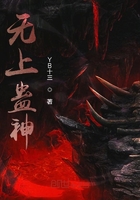But it is only when taken in a sense far removed from its ***** meaning that consumption of goods can be said to afford the incentive from which accumulation invariably proceeds. The motive that lies at the root of ownership is emulation; and the same motive of emulation continues active in the further development of the institution to which it has given rise and in the development of all those features of the social structure which this institution of ownership touches. The possession of wealth confers honour; it is an invidious distinction. Nothing equally cogent can be said for the consumption of goods, nor for any other conceivable incentive to acquisition, and especially not for any incentive to accumulation of wealth.
It is of course not to be overlooked that in a community where nearly all goods are private property the necessity of earning a livelihood is a powerful and ever present incentive for the poorer members of the community. The need of subsistence and of an increase of physical comfort may for a time be the dominant motive of acquisition for those classes who are habitually employed at manual labour, whose subsistence is on a precarious footing, who possess little and ordinarily accumulate little; but it will appear in the course of the discussion that even in the case of these impecunious classes the predominance of the motive of physical want is not so decided as has sometimes been assumed.
On the other hand, so far as regards those members and classes of the community who are chiefly concerned in the accumulation of wealth, the incentive of subsistence or of physical comfort never plays a considerable part. Ownership began and grew into a human institution on grounds unrelated to the subsistence minimum. The dominant incentive was from the outset the invidious distinction attaching to wealth, and, save temporarily and by exception, no other motive has usurped the primacy at any later stage of the development.
Property set out with being booty held as trophies of the successful raid. So long as the group had departed and so long as it still stood in close contact with other hostile groups, the utility of things or persons owned lay chiefly in an invidious comparison between their possessor and the enemy from whom they were taken. The habit of distinguishing between the interests of the individual and those of the group to which he belongs is apparently a later growth. Invidious comparison between the possessor of the honorific booty and his less successful neighbours within the group was no doubt present early as an element of the utility of the things possessed, though this was not at the outset the chief element of their value. The man's prowess was still primarily the group's prowess, and the possessor of the booty felt himself to be primarily the keeper of the honour of his group. This appreciation of exploit from the communal point of view is met with also at later stages of social growth, especially as regards the laurels of war.
But as soon as the custom of individual ownership begins to gain consistency, the point of view taken in ****** the invidious comparison on which private property rests will begin to change.
Indeed, the one change is but the reflex of the other. The initial phase of ownership, the phase of acquisition by ***** seizure and conversion, begins to pass into the subsequent stage of an incipient organization of industry on the basis of private property (in slaves); the horde develops into a more or less self-sufficing industrial community; possessions then come to be valued not so much as evidence of successful foray, but rather as evidence of the prepotence of the possessor of these goods over other individuals within the community. The invidious comparison now becomes primarily a comparison of the owner with the other members of the group. Property is still of the nature of trophy, but, with the cultural advance, it becomes more and more a trophy of successes scored in the game of ownership carried on between the members of the group under the quasi-peaceable methods of nomadic life.















